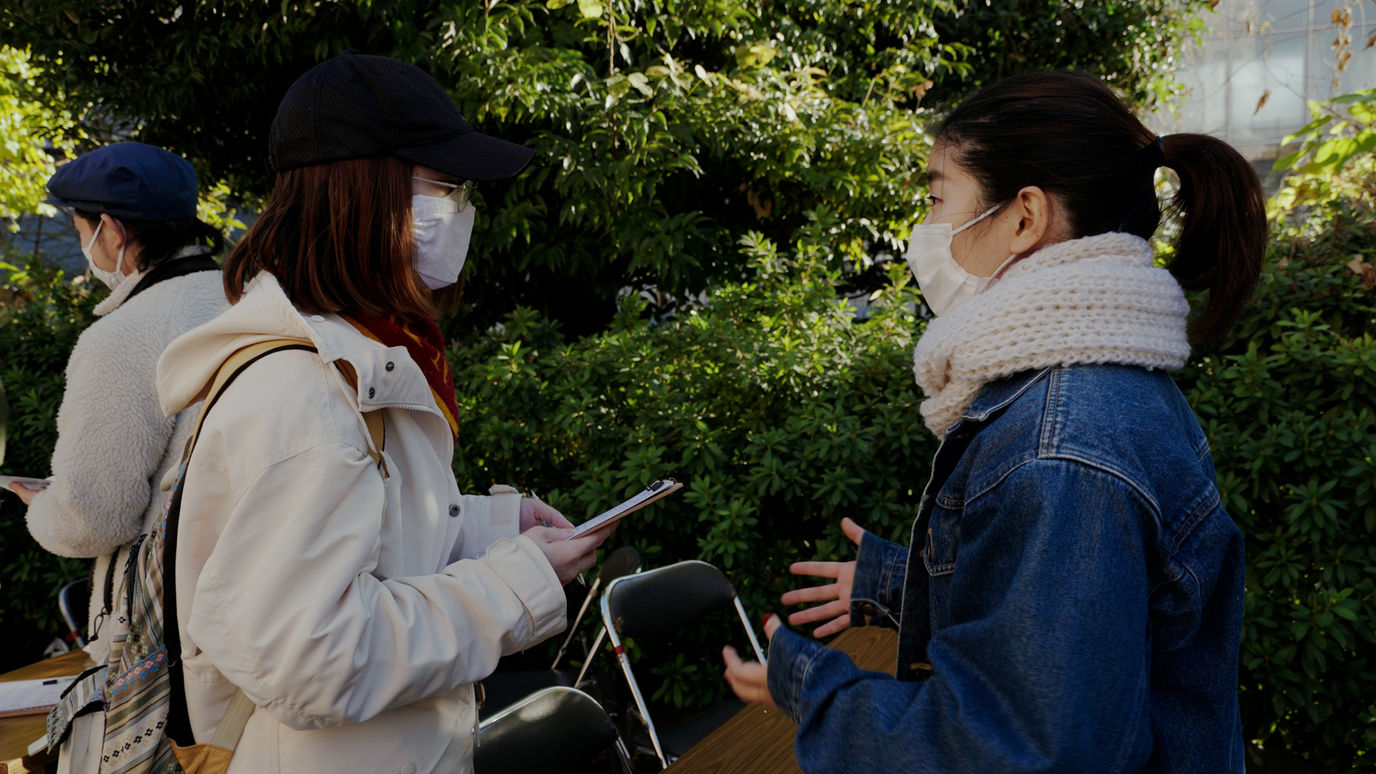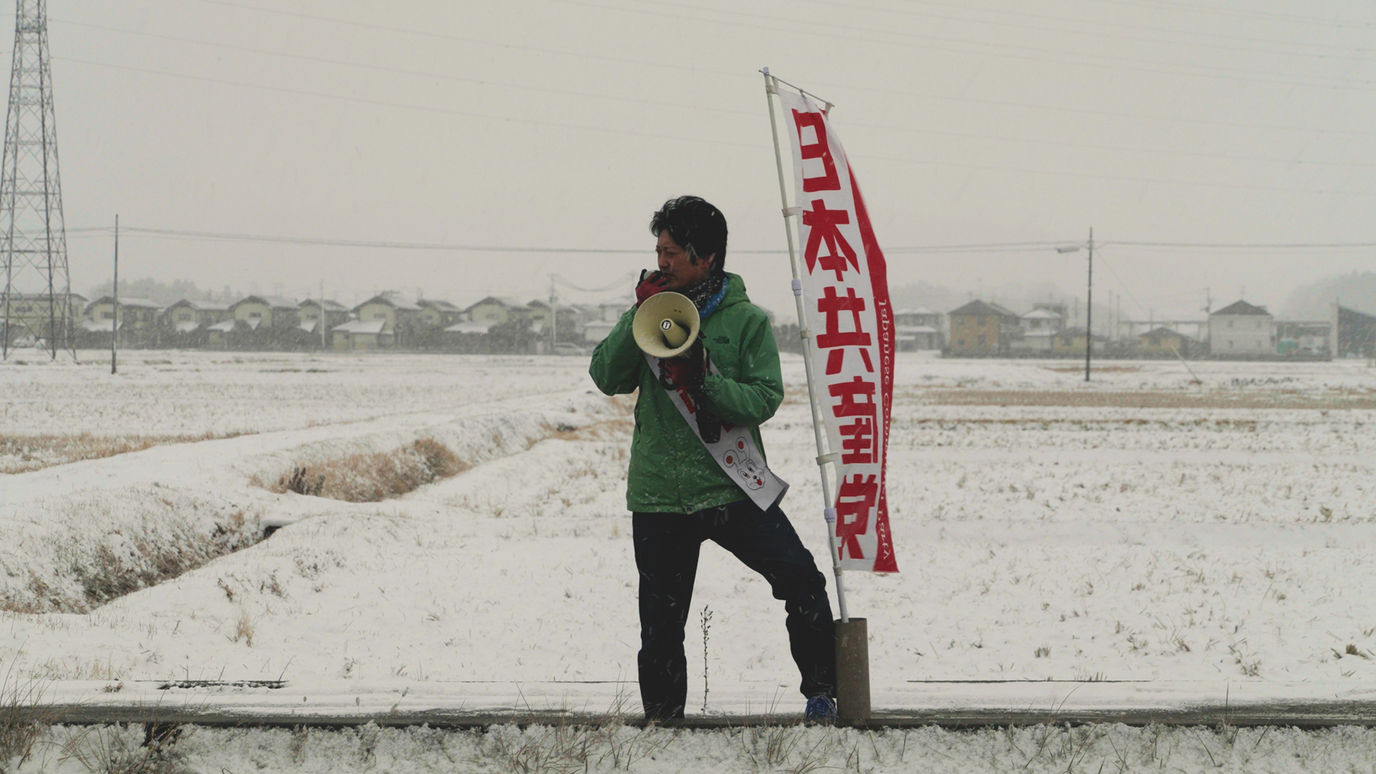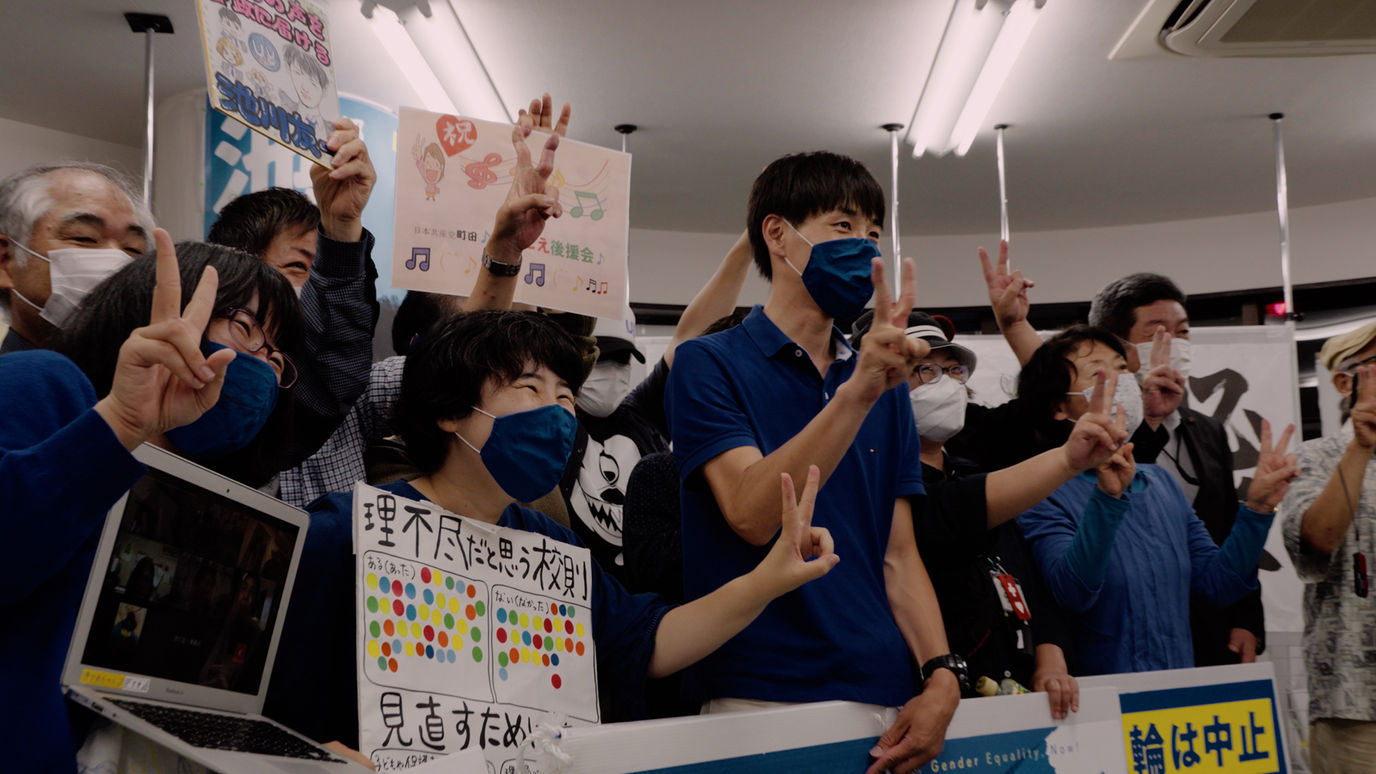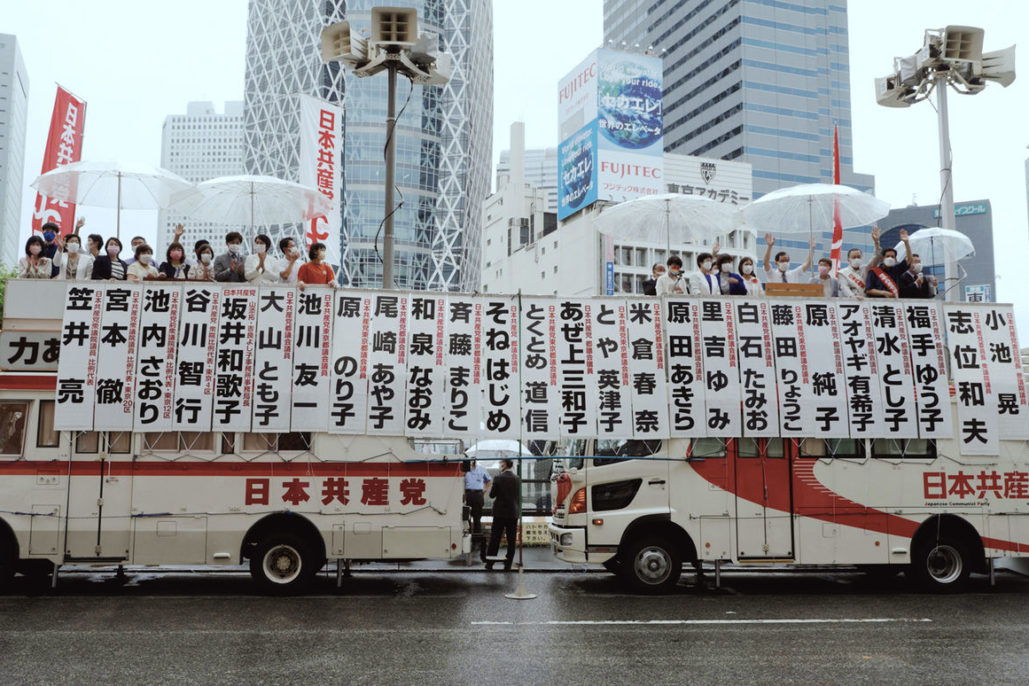by Brian Hioe
語言:
English
Photo courtesy of ML9
This is a No Man is an Island film review written in collaboration with Cinema Escapist as part of coverage of the 2023 International Film Festival Rotterdam. Keep an eye out for more!
ONE HUNDRED YEARS AND HOPE follows young candidates of the Japanese Communist Party (JCP) on the campaign trail. In particular, the documentary follows a group of candidates during the COVID-19 pandemic, who call for canceling the 2020 Tokyo Olympics/Paralympics and stronger pandemic measures.
There is no specific protagonist among these candidates, though the film first presents a cohort of successful candidates before turning to another group that isn’t victorious . However, One Hundred Years and Hope’s group focus gives us viewers a decent sense of the party’s values. A number of the candidates fielded by the JCP are openly gay, while some of the female candidates it fields have made combating sexual harassment into a central campaign issue.

Photo courtesy of ML9
Interviews with an older party member in one part of the film suggest historical continuity, framing the JCP as having long engaged in a political struggle for the improvement of Japanese society. This interview also helps flesh out the JCP’s rejection of the Chinese Communist Party. At several other points in the film, some party members reflect on how the historical baggage of the name “communism” turns away potential voters, and wonder whether the JCP should change its name.
It is self-evident, then, that the documentary aims to heroicize the JCP and its members in some respect. But the film does so in an understated manner, in showing the party’s campaign activities, as well as both victories and defeats, with a low-key tone. While there’s one dramatic scene where JCP members canvass in the snow, One Hundred Years and Hope’s avoidance of high drama or emotionality makes it exploration more resonant. . One can compare this to other recent documentaries about Japanese election campaigns, such as Kazuhiro Soda’s 2007 Senkyo–which perhaps took the opposite approach, in documenting the election campaign of a Liberal Democratic Party (LDP) candidate.

Photo courtesy of ML9
By refraining from focusing on any specific candidate, One Hundred Years and Hope also sheds less insight on why individual JCP members join the party, or decide to run for office, at least beyond a broader desire to change society. Perhaps the film would have benefited if there had been a more specific focus on some candidates’ subjective views or personalities.
Likewise, viewers do not come away with a sense of the JCP’s internal operations, or its party culture. Some aspects of the film that depict the JCP’s party newspaper, referring to how this is a major source of funding for the party, show aspects of its internal culture with regard to how editorial or layout decisions are made. Yet these are still relatively cursory glimpses into the party. More generally, one sees a relatively narrow focus on the party’s ground-level candidates. Notably, though the party’s candidates are profiled at length, there is not as much focus on the party’s leadership or their own strategic decisions.

Photo courtesy of ML9
To this extent, one suspects that aspects of the documentary may remain opaque for viewers without some knowledge of Japanese politics. The contentious politics around the 2020 Tokyo Olympics, Japan’s COVID response, or the distinctions between the JCP and rival parties, such as the ruling LDP or Komeito, may be hard for non-specialists to understand. The JCP’s focus on fighting against sexual harassment in society, or in favor of gay marriage and gender equality, proves more approachable for those without in-depth knowledge of social issues in Japan. Nevertheless, the documentary could have perhaps done with a bit more contextualization for viewers, even if it is able to situate the JCP relative to global left politics.
Despite some of these flaws, One Hundred Years and Hope is still a capable documentary. The film does shed light on the JCP and its place in Japanese society, even if it is also clear that the documentary aims to depict the party in a positive light.



